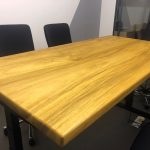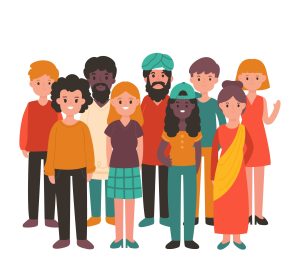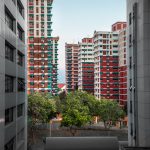I came to know of Jejaka through an article I read on Pink Dot Sg’s Facebook page. It intrigued me to find out more because I have never heard of a LGBT support group specially set up for the Malay community. In case you are wondering, Jejaka in Malay translates to ‘young man’.
Jejaka was set up to provide a safe space for young GBQ (Gay, Bisexual and Queer) Malay, Muslim and Malay-Muslim men to network and connect with one another. They hope to provide an opportunity for everyone to share their experiences and challenges faced as they navigate their identities in a complex landscape.
Before you get quick to judge, leave religion aside and let me tell you a story about Adrian – a 27-years-old Singaporean Malay gay man.
Silent Acceptance

“Growing up as a gay man was not easy for me. Coming to terms with my sexuality and finding who I really am was a struggle.”
Sharing his first experience of a same-sex attraction, Adrian describes, “It happened when I was 12 years old. I was in my school’s rugby team and I realised I was attracted to my rugby coach. I was frequently bullied for being effeminate. I used to be called names such as ‘Ah Gua’, “Sissy” and “Bapok” in school because of the way I talk, walk and just because I was always hanging around with the girls.”
For the next few years, Adrian kept his sexuality from his family. But, everything came spilling out of the closet when his grandmother accidentally witnessed an affectionate scene between him and his then boyfriend.
“My grandmother didn’t say anything at first. And over the next few days, nobody in the family probed about the incident.But, just when I thought that I was in the clear, my mum suddenly confronted me about the kiss!”
“My mum told me that my grandmother had told her about what had happened. It was then that I decided to tell my mum that I’m gay.”
He recalls, “At first, my mum couldn’t come to terms with the revelation and tried to explain to me that it was all just a phase. But as time passed, she came to accept my sexuality although she never explicitly acknowledged it. We have not talked about this topic ever since.”
In 2016, Adrian found out about Jejaka when decided to rejoin SGRainbow and met Yusof, the founder.

Left: At a SGRainbow roadshow | Right: Adrian . Source: Jejaka
“Yusof introduced me to Jejaka. They offer good peer support and is also a good opportunity to share my own story and to hear stories from other participants. I strongly encourage more GBQ Malay, Muslim and Malay-Muslim youth to join Jejaka because this support group provides a safe and brave space for them to discuss openly about issues that matter, with no judgement.”
“I have met amazing people through Jejaka, knowing that I am not alone in my situation”, says Adrian with gratitude.
Why Does The Rainbow Flag Trigger Such A Huge Uproar?

Each batch of participants has to participate in 4 sessions of various topics. The sessions are thematically based so that they are focused in their discussion although these topics transcend one another.
Yusof explains, “The sessions typically begin with a trigger; be it a news article or a video, and then the main discussion starts when most of the sharing happens. We normally encourage participants to share as much as they can so that others who may have had similar experiences be able to connect with it.”
“We do have a lot of instances in our previous runs where these experiences were raw – they were never shared to anyone else before their participation in Jejaka.”
Yusof then tells me that there are three issues that are frequently brought up – family, religion and society.
“Somehow these three are the most common issues surfaced faced by our participants. These issues do not come in on their own. For example, a family is non-accepting of the son’s sexual orientation due to religious reasons and there is the worry of possible backlash that they will face from the larger community.”
“These problems are all interlinked with one another.”
Curious, I ask Yusof if he is worried of criticism from the public or the strict Islamic community.
He says that they are thankful because Jejaka started out as a project by SGRainbow, which is a GBQ youth group, hence they are always under a comfortable umbrella.
However, he insists that “we are clear in that we do not aim to change anyone’s sexuality or religion or provide any professional advice. We are mainly a peer-led group and we encourage participants to be discerning with whatever stories they hear from others. No one is right. We are all humans.”
There is no right or wrong; scientists have proven that homosexuality is caused by genetics but Islamic scholars argue that it is a sin because of what their faith dictates.
Instead of arguing, Yusof hopes that its members can use Jejaka as a platform to seek solace and be themselves.
He explains, “We do not provide any truth nor do we have any answers. We are a group which seeks to provide a platform for stories to be shared and heard. Every batch provides a different answer and every individual reconciles their faith and sexuality differently. We embrace all forms of reasoning that people choose to believe in.”
“In the end, who are we to judge your efforts?”
To understand more about Jejaka and its activities, visit them here.











